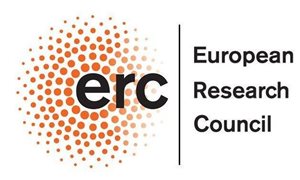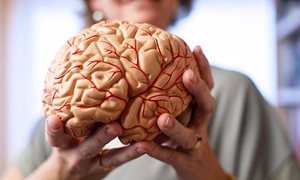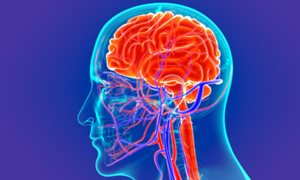
The Radboudumc, together with the University of Cambridge, receives a grant of 1.8 million euros from three collaborating cardiac foundations for international research into the small blood vessels in the brain. Neurologist Frank-Erik de Leeuw and internist Niels Riksen will jointly investigate the role of inflammation and the immune system in what goes wrong in these tiny brain vessels, which can lead to strokes and diseases such as dementia.
This research revolves around the tiny blood vessels in our brains. These are very important to supply our brain with oxygen, but in many people they do not work optimally. This can lead to cerebral small vessel disease, a brain disease that causes all kinds of symptoms, ranging from memory problems to dementia and Parkinsonism. It also causes over 25% of all brain infarcts and the majority of all brain haemorrhages.
There is no good treatment yet, because scientists do not yet understand exactly what goes wrong in those cerebral vessels. The international team, consisting of research leaders neurologist Frank-Erik de Leeuw, internist Niels Riksen and researchers from the University of Cambridge, will investigate this in detail over the next few years. They have hypothesized that the immune system, which protects the body from outside bacteria and viruses, plays a role in the development of small vessel disease.
By gaining a better understanding of how the immune system works, the researchers hope to gain more insight into the origins of this disease. Frank-Erik de Leeuw: "This grant provides a wonderful impetus to further expand a long-standing collaboration between Niels and me and to make maximum use of our complementary expertise in order to jointly find new treatments for patients with small vessel disease."
Niels Riksen: "Together with top researchers from Cambridge, we can look in great detail at how the immune system works in patients with small vessel disease; we expect this to lead to unique new insights into this disease."
This study is funded by the Heart Foundation, working with British and German colleagues, namely the British Heart Foundation (BHF) and the Deutsches Zentrum für Herz-Kreislauf-Forschung (DZHK). It is expected that this international collaboration will provide new insights that the countries individually would not achieve - or would be much less likely to achieve. The cooperation partners in Germany, Great Britain and the Netherlands all have specific knowledge, which is now being brought together for the first time.
-
Want to know more about these subjects? Click on the buttons below for more news.
More information
Pauline Dekhuijzen

wetenschaps- en persvoorlichter
Related news items

NWO Stevin Prize for expert on Parkinson’s disease Bas Bloem Major scientific prize for societal impact on research into Parkinson's disease
17 June 2022 Neurologist Bas Bloem of Radboudumc receives this year’s Stevin Prize of the Dutch Research Council (NWO). The Stevin Award is the highest distinction in science for a researcher in the Netherlands who has achieved particular success in the area of knowledge utilization for society. go to page
The future of laboratory animal research More attention to living conditions of laboratory animals
16 May 2022 On May 9, a meeting took place at the Radboudumc as a result of the launch of the Dutch Transparency Agreement on Animal Testing. The Radboudumc is one of the twenty signatories and has thus committed itself to openly and transparently communicate its vision and policy with regard to animal testing. go to page
European grants for groundbreaking Radboudumc research Professors Roshan Cools and Peter Friedl receive ERC Advanced Grant
26 April 2022The European Research Council (ERC) is awarding grants to Roshan Cools and Peter Friedl, both professors at Radboudumc. While Cools will investigate how brains control behaviour in (stressful) situations, Friedl will work on developing a new cancer therapy.
go to page
Aerobe exercise has a positive effect on brain function in Parkinson's disease patients
18 January 2022 Radboudumc researchers have shown that the brain function of patients with Parkinson's disease improved with regular exercise, which seems to strengthen the connections between different brain areas, while inhibiting brain shrinkage. go to page

